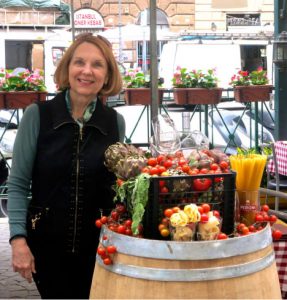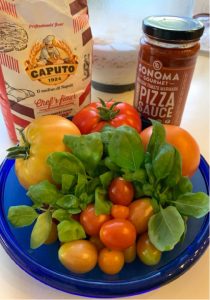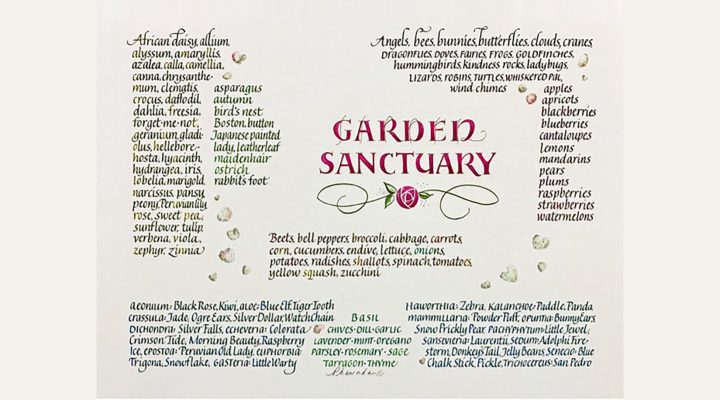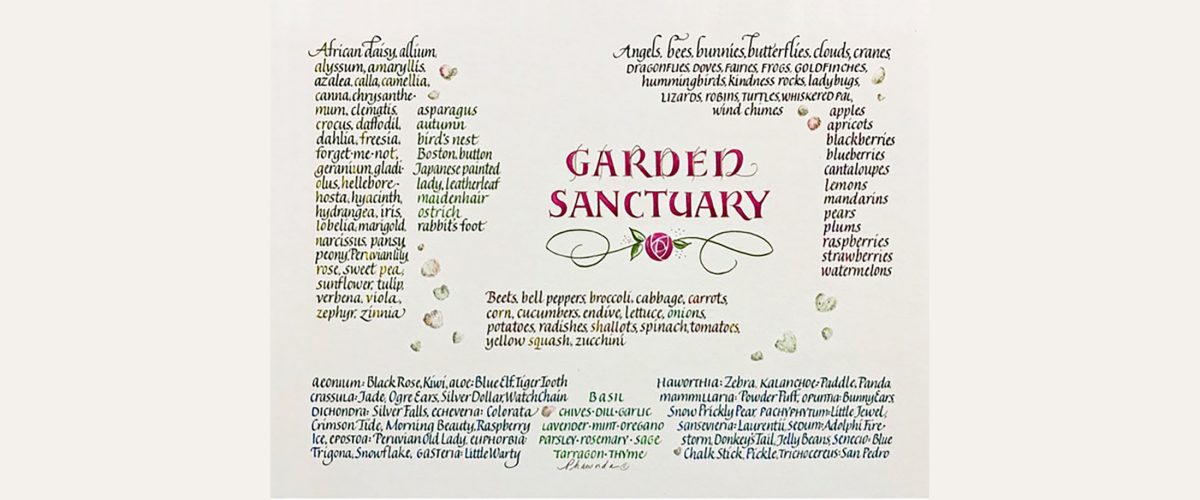One of the most flourishing post-pandemic interests is gardening. And the season is upon us.
“Show me your garden and I’ll tell you who you are.” — Alfred Austin, English poet laureate, wrote in the 1800s.
My own garden would reveal a sanctuary, where I’m reminded that God created the first garden to bring order out of chaos. On days when plants make more sense than people, it’s where I head to protect my peace and ponder the same questions that you’re probably asking with “breaking news.”
“We learn from our gardens to deal with the most urgent question of the time: How much is enough?” — Wendell Berry, American Poet
All the mess and bodily discomfort you just can’t escape are outweighed by the benefits. Gardening gets you moving, thinking. There’s something about touching the earth, cooperating with a plant’s needs and anticipating and solving issues that proves God’s creativity is more than abundant. The experience renews us.
“The glory of gardening; hands in the dirt, head in the sun, heart with nature. To nurture a garden is to feed not just the body, but the soul.” — Alfred Austin

Phawnda at a vegetable stand in Rome, Italy.
Then, there’s the harvest that awaits. Not of the garden but the ongoing state of our soul. The question to humbly ask, with dirt on our hands, is: Are we cultivating the seeds in life that allow the fruits of the Spirit to grow? The garden is the ideal place to meditate on love, joy, peace, patience, kindness, goodness, faithfulness, gentleness, self-control.
I’ve also discovered some of my plants have biblical meanings that I was unaware of. For specific plant references in the Bible, you may find this article interesting.
Past travels have taken us to famous gardens in Europe, Alaska, Canada and the tropics. While they offer much in terms of creativity and beauty for the senses, today’s communities are keeping pace with the planet by experiencing the bounty of the garden’s more practical aspect: planting for healthy eating.
In stressful, uncertain times, victory gardens have taken root. Post-World War I and II attracted home gardeners with all levels of experience, and community gardens were encouraged by well-known victory gardeners that included Mickey Mouse, Batman and Superman. Because many were new to gardening, the government provided guides and classes to ensure success. In 1943, victory gardens supplied 40% of America’s produce.
Gardeners have stories to tell in America, and they follow themes of patriotism, the common good and supplying seed for the world.
The White House has its own vegetable gardening history, beginning with Eleanor Roosevelt, whose garden was planted on the front lawn.
Later, Hillary Clinton had a vegetable garden constructed on the roof of the White House.
Michelle Obama broke ground on the largest and most expansive vegetable garden to date on the White House lawn that’s still in existence. In 2021, First Lady Jill Biden sent vegetables from it to Michelle Obama.
Especially in tough times, our minds seek ways to be self-reliant. Ruby Scalera writes about victory gardens from a post-pandemic perspective.
 Since California, where I live, produces 13% of the nation’s agriculture, Sacramento is known as the Farm to Fork Capital. Amber Stott leads the Food Literacy Center. She says: “We teach weekly programs after school in low-income elementary schools throughout the Sacramento area. In our classrooms, students learn fruit and vegetable appreciation, how to read nutrition labels, cooking skills and environmental impacts of their food choices — and they have fun.”
Since California, where I live, produces 13% of the nation’s agriculture, Sacramento is known as the Farm to Fork Capital. Amber Stott leads the Food Literacy Center. She says: “We teach weekly programs after school in low-income elementary schools throughout the Sacramento area. In our classrooms, students learn fruit and vegetable appreciation, how to read nutrition labels, cooking skills and environmental impacts of their food choices — and they have fun.”
Personally, I love that one can find common ground with others, often bringing out the best in friends and neighbors. Like many creative activities, there’s always a need for helpful advice — learning about new products like grow bags, or sharing the unexpected or confusing: When voles show up uninvited for a gourmet tulip feast, what did you do? How long do dahlias take before sprouting? Is it too early or too late to grow carrots? What works to control mosquitoes and ants?
This year, I updated the garden with metal boxes and a hobby greenhouse. It sounded simple — until it wasn’t. I learned patience. But now, the vegetables are catching up with the unpredictable weather and scheduling. Faith. I can see their mission is to put on quite a show. Oh, joy.
For those curious, I’m growing zucchini, cantaloupe, tomatoes, green beans, watermelon, cucumbers, potatoes, green peppers, blueberries and raspberries, with lots of marigolds to attract good pollinators and repel the bad guys. Goodness. Chances are, some of my abundance will be shared, including hand deliveries at dawn to local porches to brighten the day. Love.
“My passion for gardening may strike some as selfish, or merely an act of resignation in the face of overwhelming problems that beset the world. It is neither. I have found that each garden is just what Voltaire proposed in Candide: a microcosm of a just and beautiful society.” — Andrew Weil, American scientist
It is uplifting to put on a hat, pull weeds and remember Audrey Hepburn saying: “To plant a garden is to believe in tomorrow.” Dig in — and share — one of the blessings of this earth.
Phawnda Moore is a Northern California artist and award-winning author of Lettering from A to Z: 12 Styles & Awesome Projects for a Creative Life. In living a creative life, she shares spiritual insights from traveling, gardening and cooking. Find her at Facebook: Calligraphy & Design by Phawnda and Instagram: phawnda.moore


